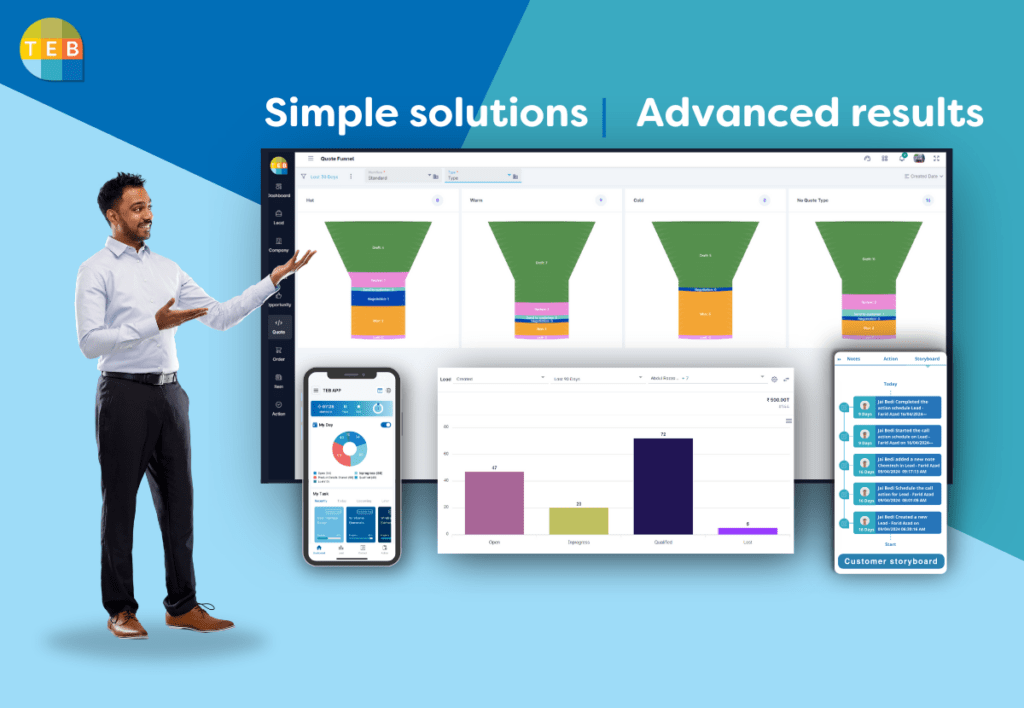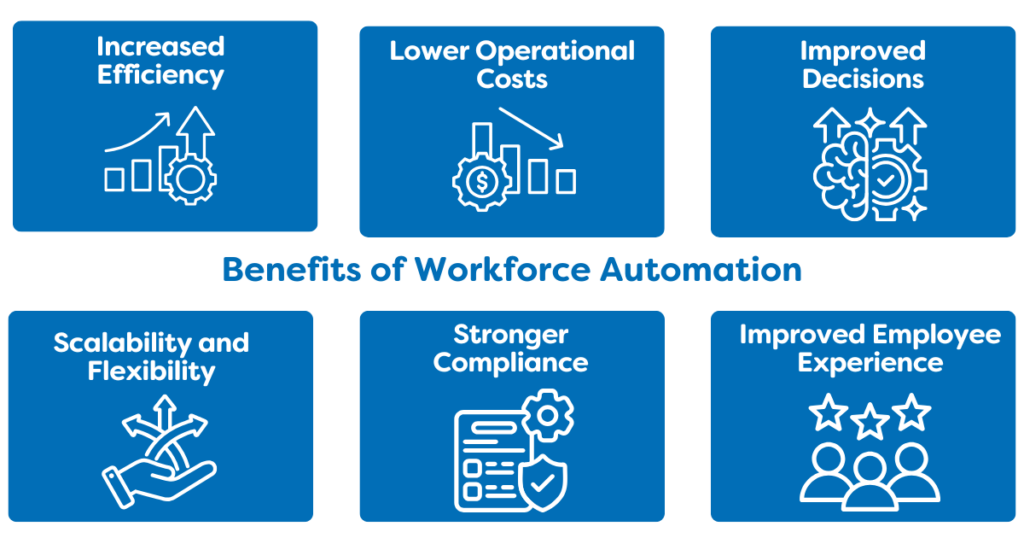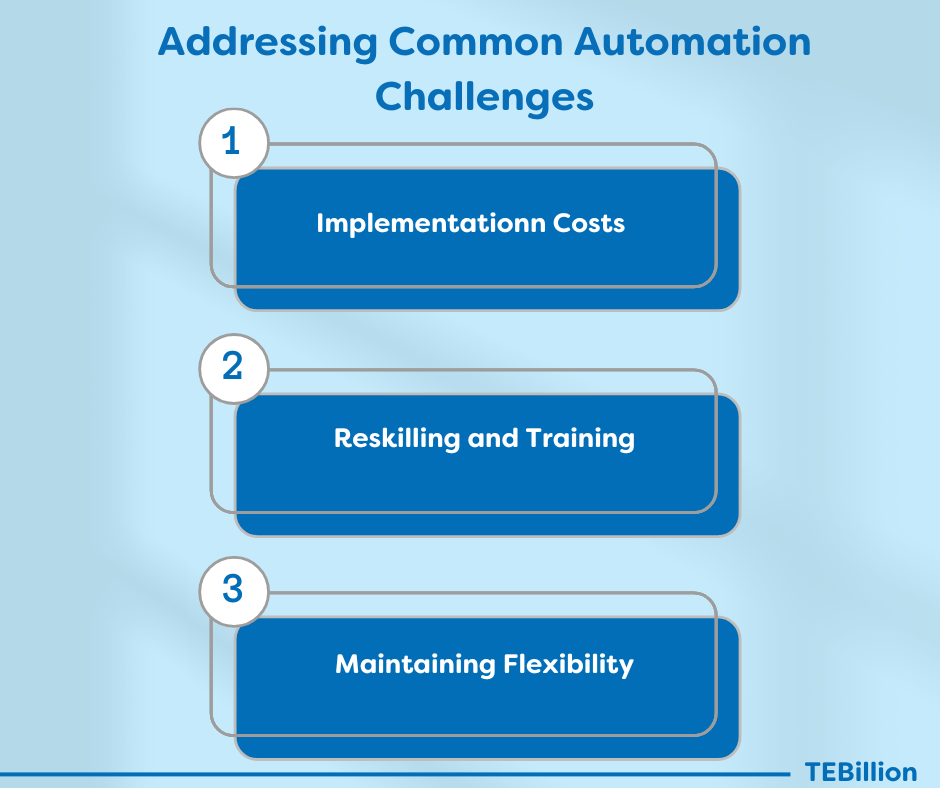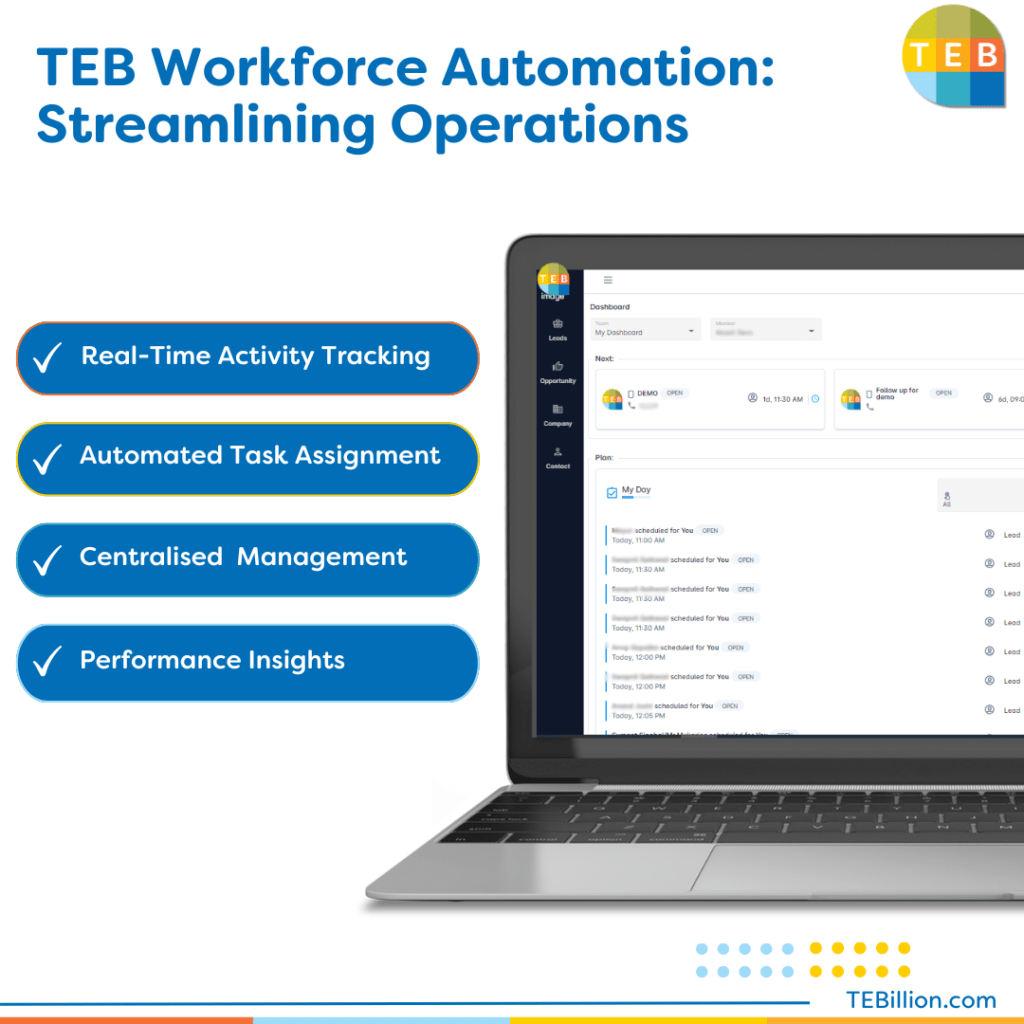
Modern businesses are increasingly driven by data and smart technology that help teams do more with less. Workforce automation has transformed daily operations—supporting productivity, streamlining processes, and ensuring businesses achieve stronger returns on investment (ROI).

Workforce automation uses tools like Artificial Intelligence (AI), Machine Learning (ML), and software systems to handle tasks that were once manual, such as:
For many organisations, workforce automation also extends to manufacturing, sales, and billing—helping bridge the gap between departments and enabling a truly connected workplace.
TEB simplifies these processes by bringing multiple areas of business automation together in one platform. With proven results like a 40% boost in leads and a 35% increase in revenue, automation is no longer optional, it’s essential.
Today’s markets are faster, more competitive, and more connected than ever. Businesses are expected to deliver exceptional speed, accuracy, and service—while keeping costs low.
Automation helps companies stay competitive by:
By embracing automation, companies gain a measurable advantage. Those that don’t risk being left behind as others evolve through smarter, data-driven operations.
Workforce automation impacts every part of a business—from how teams collaborate to how customers experience the brand.

Automation performs repetitive tasks quickly and consistently, freeing employees to focus on creative, high-value work that drives growth.
With fewer manual tasks and errors to correct, companies save both time and money. Efficiency also reduces overheads and maximises resource use.
Automation gives managers access to real-time data, allowing for smarter planning, faster reactions, and more confident decision-making.
As businesses grow, automation scales easily—adapting to demand without the need for proportional increases in staff or resources.
Automation provides clear accountability, ensuring data integrity and helping organisations stay compliant with industry standards.
With routine work handled automatically, employees gain time to focus on projects that use their skills, improving engagement and morale.
Some companies hesitate to automate due to concerns around cost, training, or flexibility—but these challenges are easily managed with the right approach.

Implementation costs:
Start by reviewing existing systems and identifying gaps. Platforms like TEB.io combine multiple automation functions, reducing the need for separate tools and expensive licenses.
Reskilling and training:
Upskilling employees ensures they feel confident and supported. When teams understand that automation enhances rather than replaces their roles, adoption improves significantly.
Maintaining flexibility:
Automation works best when balanced with human oversight. With TEB’s customisable workflows, businesses maintain control while benefiting from efficiency and consistency.
Automation boosts productivity by taking over routine, time-consuming activities—like data entry, task assignment, and follow-up tracking. With these handled automatically, teams can focus on strategy and relationship-building.
Combined with analytics, automation gives managers clear visibility into team performance, helping identify opportunities for coaching, reskilling, or advancement.
Field-force automation also plays a key role, enabling businesses to track tasks, measure results, and improve coordination across locations.
TEB’s workforce automation gives businesses real-time control and visibility across their operations. Results include:
With TEB, you can manage complex operations across multiple teams and regions effortlessly.
Key features include:

TEB works with real-time data to help your business operate at its highest potential.
Book a demo today to see how TEB simplifies workforce management and helps your business grow.